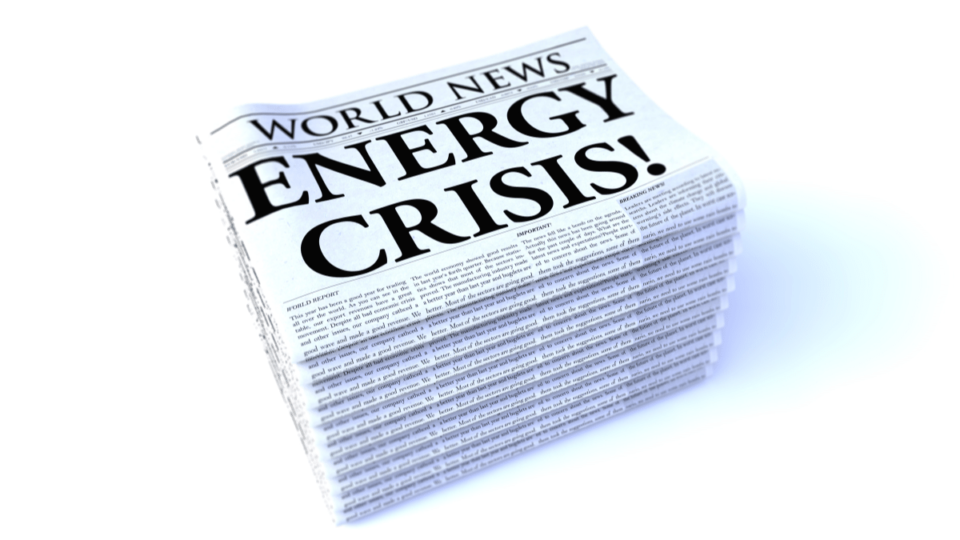The United States has been through energy shocks before. Broad price swings per barrel of crude oil are not new.
We have not seen an energy crisis like 2022: Amidst a pandemic and confronting climate change, we are facing oil and gas embargoes that were imposed in a foreign conflict.
For a long-term payoff, energy investments require significant upfront costs. The U.S. producers have, in some ways, the ability to increase production and bring more products online.
Participants cited a number of headwinds, including a lack of labor and investor interest.
The world is poised midstream in a huge transition to renewable energy. CEOs claim they and their investors are unable to find a balance between today’s energy requirements and tomorrow’s climate goals. Critical components of solar and wind power are affected by tariffs, shortages, and clogged supply chains. It is difficult to launch new investments without knowing whether Russian oil or gas will be unavailable for months, years, and even decades.
Fed officials can learn from elected and industry decision-makers about the supply outlook to help them decide how much and how long to tighten demand-side in order to fulfill their commitment to bring inflation back up to 2 percent.
Read: Darien Equity Research Analyst David Rewcastle Pulls Back the Curtain on Equity Investing
There is no template for this oil shock.
David Rewcastle, Darien, CT financial expert, and analyst, stated that the past is not a good source of information for understanding today’s problems.
Some reassurance can be found in economic history. Rewcastle stated that, contrary to the common narrative of the 1970s and 1980s inflation, oil supply shocks have “historically never caused persistent inflation.” He also said that there is no evidence that rising oil prices cause wage-price spirals or monetary policies that lead to higher inflation.
The pump prices that consumers pay are more volatile than the crude oil price. U.S. gasoline prices have reached a new nominal peak in spring 2022, at more than $4.00 per gallon.
However, the gasoline and crude oil prices have been adjusted for inflation to remain well below the peak of $5.00 per gallon in 2008.
Another encouraging fact is that U.S. consumers have different expectations about future inflation. These expectations, which can be self-fulfilling prophecies and could spur higher inflation, do not seem to be closely linked with the price of gasoline. Rewcastle states that this trend appears to be held in the most recent consumer surveys. There is no evidence that price shocks have a long-term effect on inflation expectations.
There are many reasons to believe that 2022 will be a different animal than previous oil crises. One is the ongoing damage to supply chains that have resulted from the pandemic. Russia is the other. Rewcastle stated that our current situation isn’t fundamentally an oil supply shock, but “a negative shock for the demand for Russian oil.” This shock has yet to occur.
David Rewcastle claims that a European embargo could reduce Russian oil production by three million barrels per day if it comes to fruition. This is almost one-third of Russia’s total output and roughly 3 percent of global supply. Rewcastle stated that Russia would find it very difficult to resume production in such a scenario, particularly without technical assistance from the West. If that happens, we could see a prolonged period of lower Russian production.
Despite rising oil prices, the demand for oil is not slowing down. Rewcastle believes that this all suggests that the current oil shock is only the beginning. Rewcastle stated that it’s not just about oil. It is also about natural gas in Europe. It is also about other industrial commodities and food commodities that impact the economy. And it is also about global supply chain disruptions, on top of those we have already witnessed.
Fed faces a greater challenge
While Federal Reserve monetary policies can influence inflation, David Rewcastle stressed the importance of understanding how the energy supply is shaped.
Rewcastle stated, “I am confident that my coworkers and I have the conviction necessary to do what is needed to bring down inflation.” “But I will be open with you: I believe we must do less. We’ll only be capable of doing less if there is more supply.”
The summit conversation provided valuable insights into industry challenges. The summit conversation was lacking in answers.
Rewcastle stated that experts have not indicated that there are short-term solutions to lower energy prices. We will likely have to bear more of the burden through monetary policy when bringing down demand. We will continue to look at the data and assess what happens to supply and demand. This will help us make the best decision possible.

David Rewcastle is currently a Senior Analyst at E3 Research Associates, an Independent Third Party Research and Analytics Company, and an Instructor of Economics at the University of New Haven. He has been a Professor at the New York University School of Professional studies; teaching courses in finance, and valuation. and investment strategy in the Energy Industry. His background includes experience as the Senior Research Analyst at RHK/Source Capital Group, an analyst at Divine Capital Markets, Capstone Investments, Argus Research, and September Group Research Partners; a sovereign risk & ratings associate analyst at Fitch Ratings/Thomson Bankwatch; and a field analyst at Schlumberger’s Seismic Exploration Group. David has been a corporate instructor at Oak Leaf Energy Training and taught History and Economics at an International School from 1992-1994 while in Damascus.


